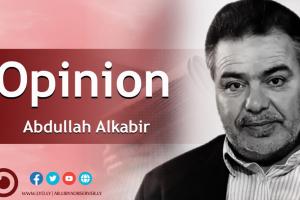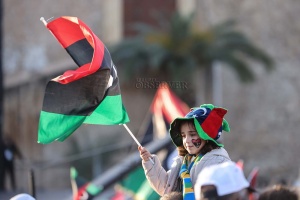By Abdullah Alkabir, political writer and commentator
Elections deepen division within HCS

The failure of the High Council of State’s (HCS) elections has deepened divisions among its members. The emerging dispute over the validity of a ballot could have been resolved early, as it did not violate procedural rules. However, the intense competition, driven by existing divisions and the intransigence of Al-Mishri and his supporting bloc, has pushed the Council to the brink of splitting into two factions, each claiming legitimacy and deeming the other invalid unless the dispute is resolved in only one of two ways as announced by the head of the HCS which is: awaiting the judiciary’s final decision or proceeding to a third round of voting.
Disagreements over election results occur even in countries with a long history of democracy, so a candidate or party may demand a recount, or a re-vote in specific electoral districts. Years ago, the Justice and Development Party objected to the results of municipal elections, so voting was repeated and the second result confirmed the first.
The candidate for the US presidency, Al Gore in 2000 against George Bush, who won in the end, objected to the results of the state of Florida, demanding a recount because the results showed a thin margin. The votes were recounted automatically and then manually, but the Bush Party’s objection transferred the dispute to the judiciary, and the US Supreme Court ruled so that George Bush would win the presidency. What is required at the end of any election is to resolve any dispute in accordance with the law and regulations, so that the winner emerges without any doubt about his legitimacy and the loser is convinced that the operation and its results are sound, and he has no choice but to concede.
Praise is axiomatic for the regular elections held by the HCS for its presidency, as they are the only remaining manifestation of democratic practice. The Speaker of the House of Representatives (HoR) did not allow any elections to be held for the presidency of the House of Representatives, and he remained in the presidency without real and effective objection from the representatives, weakening the House of Representatives and diverted its natural course, turning it into a political party managed through the setting room of its president.
However, this democratic practice of peaceful rotation of the presidency of the High Council of State is marred by many defects. Some members only attend the presidential election session, and some have other jobs in addition to continuing their membership of the HCS. This is a clear violation of the Council’s regulations. The provisions for imposing the stipulated penalties on violating members spelt out in the same regulations are being bypassed.
Until the path that the HCS will take to address this crisis is determined, members of the Council, regardless of who will occupy the position of president, must seriously think about the quickest and best ways to leave together with members of the House of Representatives, through elections that were long overdue, in which the legitimacy of the HoR will be renewed with new representatives, who bear the responsibility of getting the country out of this crisis situation, without any tricks to continue prolonging their stay for more years.
Disclaimer: The views and opinions expressed in this article are those of the writer, and do not necessarily reflect those of the Libya Observer



